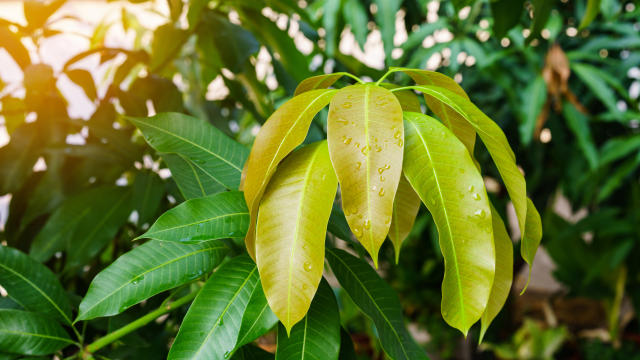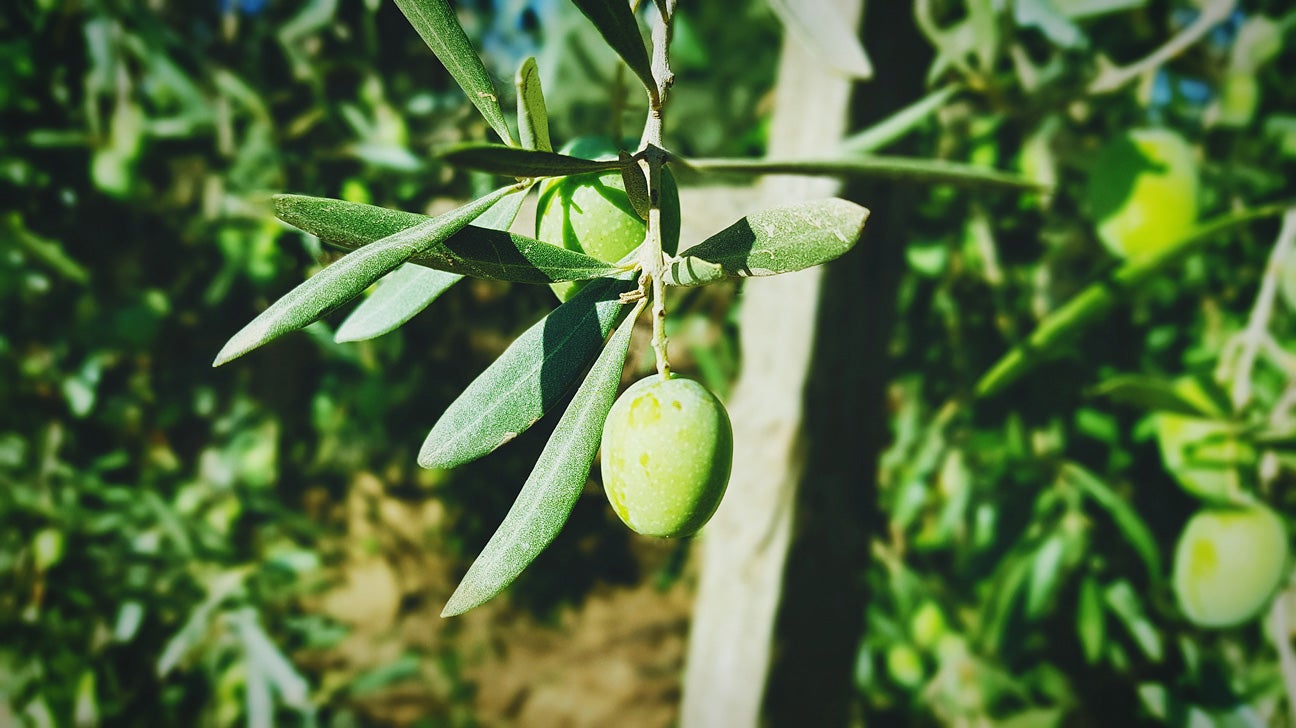When you think of the health benefits of mangoes, you probably picture the sweet, juicy fruit that’s packed with vitamins and antioxidants. But did you know that the leaves of the mango tree also have a long history of use in traditional medicine and are gaining attention in modern research for their potential health-promoting properties?
In this article, we’ll explore the science behind the surprising health benefits of mango leaves, from their rich nutrient profile and digestive health benefits to their potential role in blood sugar control, immunity, and wound healing. We’ll also discuss how to safely incorporate mango leaves into your wellness routine and what precautions to keep in mind.
The Nutritional Profile of Mango Leaves
Before we dive into the specific health benefits of mango leaves, let’s take a closer look at what makes these unassuming leaves so special. Mango leaves are rich in a variety of bioactive compounds that are thought to contribute to their medicinal properties, including:
- Polyphenols: These plant-based antioxidants help protect cells from damage caused by harmful free radicals, which are associated with chronic diseases like heart disease, diabetes, and cancer.
- Flavonoids: A subclass of polyphenols, flavonoids are known for their anti-inflammatory, antioxidant, and immune-boosting properties. Mango leaves contain several types of flavonoids, including mangiferin, quercetin, and kaempferol.
- Triterpenes: These organic compounds are found in many medicinal plants and have been studied for their potential anti-inflammatory, antiviral, and anti-tumor effects.
- Vitamins and minerals: Mango leaves are a good source of vitamin C, which is important for immune function and skin health; vitamin A, which supports eye health and cell growth; and vitamin E, a powerful antioxidant. They also contain minerals like potassium, magnesium, and copper.

While more research is needed to fully understand how these compounds work together to produce the health benefits of mango leaves, their diverse nutrient profile suggests that they may have a range of therapeutic applications.
Mango Leaves for Digestive Health
One of the most well-known traditional uses of mango leaves is for supporting digestive health. In Ayurvedic medicine, mango leaves are often used to treat diarrhea, constipation, and other digestive disorders. Modern research suggests that there may be some scientific basis for these traditional uses.
A 2012 study published in the Journal of Ethnopharmacology found that an extract of mango leaves had significant antibacterial activity against several strains of bacteria that can cause digestive infections, including E. coli and Salmonella. The researchers suggested that mango leaf extract could be a potential natural treatment for diarrhea caused by these bacterial infections.
Another study published in the same journal in 2014 found that a mango leaf extract had gastroprotective effects in rats with induced stomach ulcers. The extract was found to reduce inflammation and oxidative stress in the stomach lining, which may help prevent or heal ulcers.
While these early studies are promising, more research is needed to determine the optimal dosage and preparation of mango leaves for digestive health, as well as any potential side effects or interactions with medications. If you have a digestive disorder or are experiencing persistent digestive symptoms, it’s important to consult with a healthcare professional for proper diagnosis and treatment.
Mango Leaves and Blood Sugar Control
Another exciting area of research on mango leaves is their potential role in blood sugar control and diabetes management. Several animal studies have suggested that mango leaf extract may have anti-diabetic properties, but human studies are still limited.
A 2016 study published in the journal Pharmaceutical Biology found that a mango leaf extract was able to significantly reduce blood sugar levels and improve insulin sensitivity in diabetic mice. The researchers attributed these effects to the high levels of mangiferin, a potent antioxidant and anti-inflammatory compound, in the mango leaves.
Similarly, a 2018 study published in the Journal of Pharmacy & Bioallied Sciences found that a mango leaf extract was effective in reducing blood sugar levels and improving lipid profiles in diabetic rats, suggesting a potential role in managing diabetes and its complications.
While these animal studies are encouraging, more research is needed to determine if mango leaves have similar effects in humans with diabetes. It’s important to note that mango leaves should not be used as a substitute for diabetes medications or lifestyle changes like diet and exercise. If you have diabetes, talk to your doctor before adding mango leaves to your treatment plan.
Mango Leaves for Immunity and Wound Healing
In addition to their potential benefits for digestive health and blood sugar control, mango leaves may also have immunomodulatory and wound-healing properties. Traditional medicine practitioners have long used mango leaves to treat infections, boost immunity, and promote skin health.
A 2013 study published in the Journal of Ethnopharmacology found that a mango leaf extract had significant antibacterial activity against several strains of bacteria that can cause skin infections, including Staphylococcus aureus and Pseudomonas aeruginosa. The researchers suggested that mango leaves could be a potential natural treatment for skin infections and wounds.
Another study published in the journal Phytotherapy Research in 2015 found that a mango leaf extract had immunomodulatory effects in mice, enhancing the activity of natural killer cells and cytotoxic T cells, which are important for fighting off infections and cancer cells. The researchers suggested that mango leaves may have potential as an immune-boosting supplement.

While these early studies are promising, more research is needed to determine the optimal dosage and preparation of mango leaves for immunity and wound healing, as well as any potential side effects or interactions with medications. If you have a weakened immune system or a chronic wound, it’s important to consult with a healthcare professional for proper treatment.
How to Incorporate Mango Leaves into Your Wellness Routine
If you’re interested in adding mango leaves to your wellness routine, there are several ways to do so. Here are some tips for safely incorporating mango leaves into your diet and lifestyle:
- Mango leaf tea: One of the most common ways to consume mango leaves is as a tea. To make mango leaf tea, simply steep a few fresh or dried mango leaves in hot water for 5-10 minutes, then strain and enjoy. You can drink mango leaf tea once or twice a day, but be sure to start with a low dose and monitor your body’s response.
- Mango leaf powder: Mango leaves can also be dried and ground into a fine powder, which can be added to smoothies, juices, or other beverages. Look for high-quality, organic mango leaf powder from a reputable source, and follow the recommended dosage on the package.
- Mango leaf supplements: Some health food stores and online retailers offer mango leaf supplements in capsule or tablet form. As with any supplement, it’s important to choose a high-quality product from a trusted brand and to follow the recommended dosage. If you have any pre-existing health conditions or are taking medications, talk to your doctor before starting a new supplement regimen.
- Topical mango leaf products: Mango leaves can also be used topically in the form of creams, ointments, or poultices for skin health and wound healing. Look for products that contain pure, organic mango leaf extract and follow the instructions for use.
It’s important to note that while mango leaves are generally considered safe when consumed in moderation, they may interact with certain medications or have side effects in some people. Pregnant and breastfeeding women should avoid consuming mango leaves due to a lack of safety data. If you experience any adverse reactions after consuming mango leaves, stop use immediately and consult with a healthcare professional.
Conclusion
Mango leaves may be the unsung hero of the mango tree, offering a range of potential health benefits that have been recognized in traditional medicine for centuries and are now being explored in modern research. From supporting digestive health and blood sugar control to boosting immunity and promoting wound healing, mango leaves are a versatile and nutrient-rich addition to a healthy lifestyle.
While more research is needed to fully understand the mechanisms behind these health benefits and to determine the optimal dosage and preparation of mango leaves, early studies suggest that they may have a promising role to play in natural wellness.
If you’re interested in incorporating mango leaves into your own wellness routine, be sure to choose high-quality, organic products from reputable sources and to start with a low dose to monitor your body’s response. As with any new supplement or natural remedy, it’s always best to consult with a healthcare professional before starting, especially if you have any pre-existing health conditions or are taking medications.
With their rich history, diverse nutrient profile, and promising therapeutic potential, mango leaves are a fascinating example of how nature’s wisdom can inform modern wellness practices. As research continues to uncover the secrets of this overlooked superfood, we may discover even more ways in which mango leaves can support our health and well-being.



